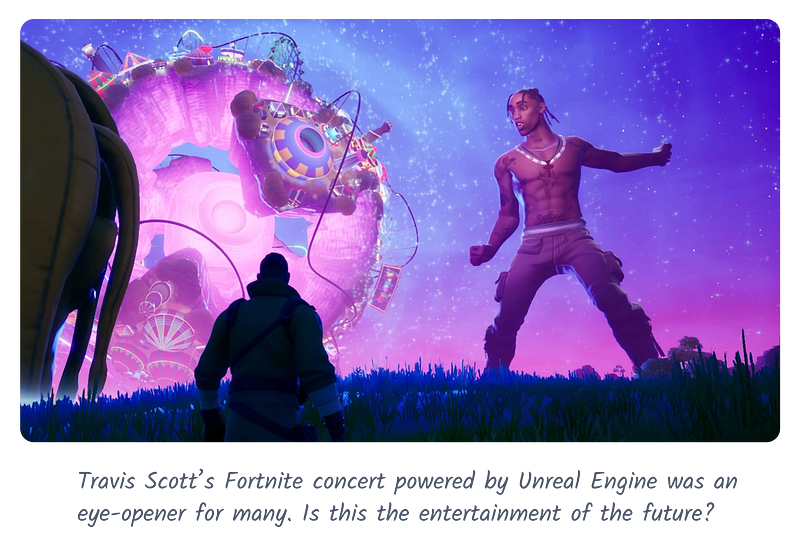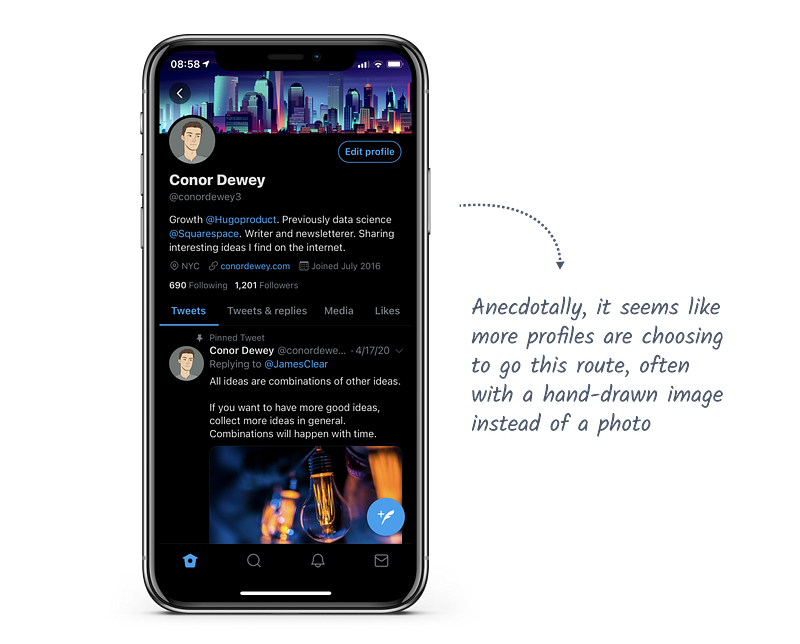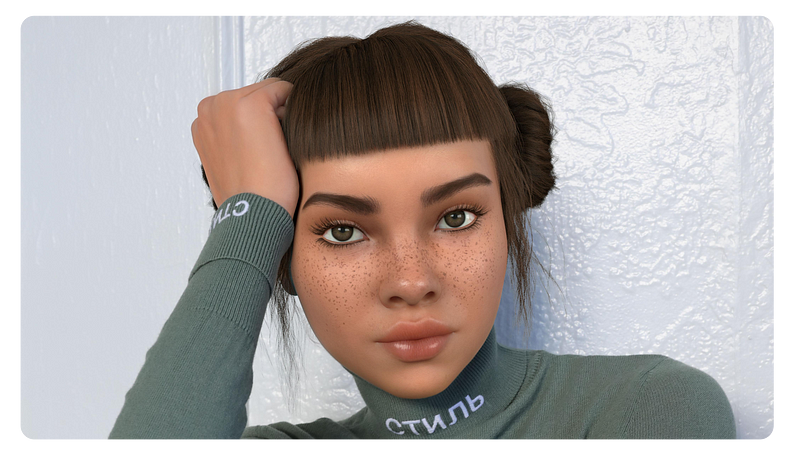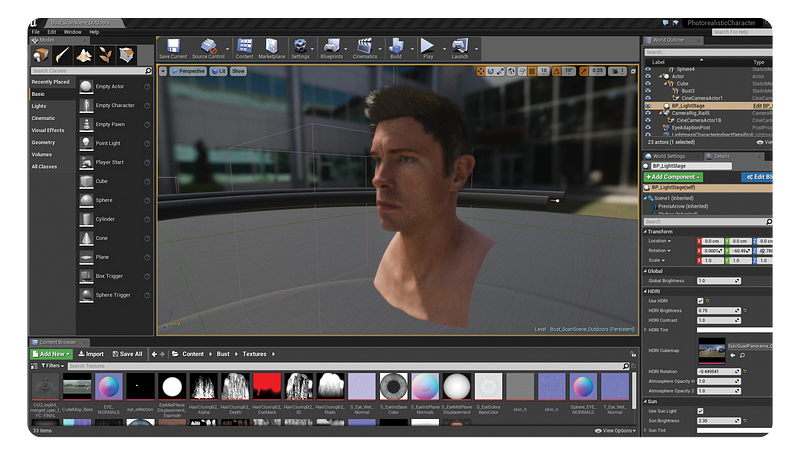📷 Virtual Avatars and Influencers
Oct 1, 2020 • 5 min • Tech
In my last essay, I spent a little time exploring the AI-focused Replika, a mobile app with the aspiration to be your virtual best friend. In writing that post, I found myself frequently branching off into the adjacent topic of avatars. For completeness, below is my favorite definition of "avatar" in this context:
Static or moving image or other graphic representation that acts as a proxy for a person or is associated with a specific digital account or identity, as on the internet
Previously, I laid out a dichotomy between transactional and conversational chatbots, or really any AI-produced written output. But what about visual output?
When most of us hear Mathew Ball say that game engines are eating the world, our minds jump to some type of Ready Player One simulated world. Truth is that graphic representations are already out there and becoming more prevalent.

Because I love breaking things down into categories, we'll think about these graphic representations in two different use cases. First is virtual avatars that map to a real person, not unlike the definition above. One way of thinking of this is that you could assign a social security number to an avatar.
On the other hand, there can be virtual characters or influencers that are based on fictional entities. You couldn't tie a real identification number to these accounts. We'll touch on more examples later, but just know that a Colonel Sanders Instagram account exists in 2020.
Virtual Avatars
In a way, this has been the case with profile pictures since the early days online. Your profile picture on Twitter doesn't have to be you. It can be a representation that portrays you however you please (this is true for all pictures, but let's try to keep things moving).

One step further, we see this with filters on Snapchat and Tiktok. We see this with more pervasive online video games like Fortnite and Roblox. Most recently, I saw an example of this on Twitch where a popular account streamed themselves with no camera, but rather a virtual version of herself. Pretty wild stuff.
taking no cam streams to the next level..
— pokimane (@pokimanelol) September 13, 2020
debuting vtuber pokimane 😳https://t.co/nlEB4gohua pic.twitter.com/TKexQ4ZaLy
But there's a deeper question here: Should our identity really be the default on social media? A blog post from the Snapchat archives, The Liquid Self argues that given how in flux our identity is, it often doesn't make sense for something that happens today to be connected to our future selves:
I wonder how we can build social media that doesn’t always intensify our own relationship to ourselves by way of identity boxes. I think temporary social media will provide new ways of understanding the social media profile, one that isn’t comprised of life hacked into frozen, quantifiable pieces but instead something more fluid, changing, and alive.
Perhaps I'm conflating temporary content vs. content attached to identity, but I think all of these things are circling a similar point: People don't always want to be tied to their realities online. And with AR filters and game engines improving at a rapid pace, we will have a lot more choice here in the coming years.
Virtual Influencers
On the other side of things, virtual influencers are probably even closer to mainstream relevance. There's more financial incentive here in the short-term and media companies will be better positioned to make moves. Take Brud for example, a Los Angeles-based startup that runs profiles for virtual personalities like Lil Miquela.

Brud creates their character's backstory, gives them relationships, has them interact with fans, and post pictures of them living their virtual life just like you. It feels kind of like reality TV to me. You know it's not real, but it's still fun to watch. Kind of like Instagram in general.
I'm pretty bullish on this use case. For one, becoming an "influencer" requires some form of differentiation. Physical appearance can get some people there, but I think we'll see more and more influencers doing things a little differently to stand out of a saturated market. And when your environment is generated by a game engine, that differentiation is easier to achieve.
You are no longer bound by physical restraints. Everything is engineered.

Sooner rather than later, we'll see virtual influencers being leveraged by more traditional media outlets. Mathew Ball talks about the ever-expanding media landscape and how the goal with content is to create a cross-platform universe e.g. Marvel with dozens of films, new video games, books and comics, etc.
One way to do this in the future is with social media. You want to make media universes less static? Head to where things are happening most frequently. I can see a world where every big Netflix show or Marvel movie will have the corresponding virtual characters on social media, much like Lil Miquela is now.
They'll post things and interact with fans as if they really exist. Our favorite characters will, in a virtual sense, come to life before our eyes.
Even when you aren't watching their movies or playing their games, you have their universe at your fingertips. I'm undecided on if I like or dislike this, but I would be surprised if this isn't where we end up heading. Buckle up and prepare your social media feed. Things are changing.
If you enjoyed this post and you’re feeling generous, perhaps like or retweet the post on Twitter. You can also subscribe in the form below to get future posts like this one straight to your inbox. 🔥